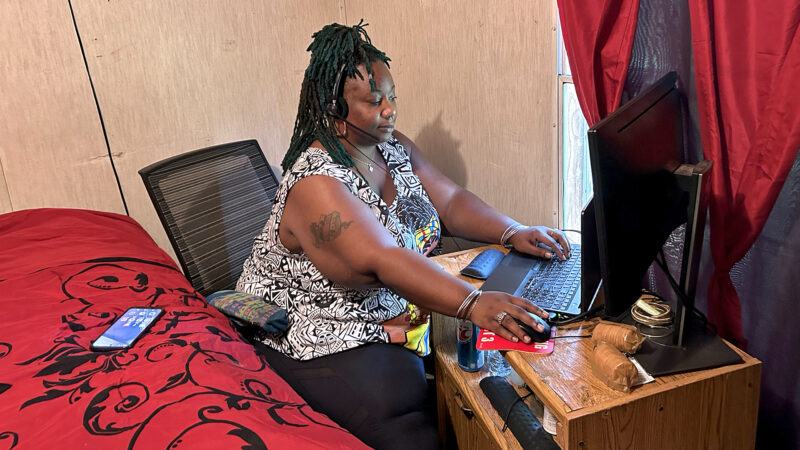INTERVIEW: Arnold Shober On The Importance Of School Board Leadership
 Birmingham– Across the country, school boards have been losing power to state and
Birmingham– Across the country, school boards have been losing power to state and
federal authorities, and some experts see local boards as increasingly ineffective. But last month the Fordham Institute, an education policy think tank, released a national report on the influence of school board leadership. According to the report, local boards actually do impact student achievement. Given recent events in Birmingham City Schools and other area systems, WBHM’s education reporter Dan Carsen caught up with co-author Arnold Shober, who says the overall vision of a school board is key, as is the way members are elected:
Below is a subject index with time pegs for the extended interview:
0:05 — Dr. Shober shares his professional background and how he got involved with the project.
1:30 — Perspective on the Fordham Institute, its partners, and the basics of how the data were compiled and analyzed.
3:22 — The researchers found a strong correlation between student academic achievement and school boards who’d made that a clearly stated goal.
4:11 — Students in systems with board members elected by sub-district (as opposed to “at large”) typically don’t do as well academically.
4:40 — Board members elected in November — during “normal” elections — tended to be more informed. But there’s a caveat.
5:08 — School board members are not terribly well informed, at least as measure by the survey questions.
6:15 — But that “disconnect” between realities on the ground and board members’ perceptions of their districts actually doesn’t matter for academic achievement.
7:00 — Carsen brings up “micromanagement” as related to recent events on the Birmingham Board of Education.
8:00 — School board members are “educational visionaries” and “elected overseers.”
8:35 — Carsen asks about the structural problem of sub-district-elected board members looking out mainly for their sub-districts.
9:15 — Shober says big-city mayors have good reasons to want to usurp school boards’ functions.
10:53 — School boards are often critiqued as ineffective, but the Birmingham situation shows how important they are: “… they can make things very bad or very good … [and] there’s something to be said for a working relationship with Superintendents. When that goes bad, bad things happen.”
12:23 — Carsen brings up the example of Hoover, where citizens have felt frozen out by an appointed board. Shober details the pros and cons.
14:15 — A caveat: other factors affect student achievement much more than the make-up of school boards does … but, “every point you can get is a good one.”
15:15 — Other research has shown that in non-white districts, having non-whites elected to school boards is positively correlated with student achievement.
15:37 — Carsen asks about the report’s surprising finding that liberal and conservative board members are less informed about their own districts than moderates are. Shober explains why that might be, and what it actually means for conducting the business of a school board.
18:30 — Carsen asks about the report’s surprising finding that people who’ve worked as educators tend to be less informed about their own districts. Shober explains.
21:30 — Carsen asks about the difficulty and validity of drawing conclusions about institutions (local school boards across the country) that are so numerous and so diverse.
23:35 — Carsen asks Shober to address some of the limitations and criticisms of the study.
25:35 — Final points?
26:20 — A note of humility in the face of complexity.

Gambling, ethics bills fall short as legislative session ends
Alabama lawmakers closed the books on this year’s regular legislative session Thursday. While Republican leaders passed many of their priority bills, perhaps the most talked about issue – gambling – died.
A look at what passed and failed in the 2024 legislative session
Alabama lawmakers have ended a 2024 legislative session that saw the Republican majority win approval for a number of their top priorities.
Q&A: Bobby Carter on leading Tiny Desk, his time at Jackson State, early career advice
Carter, a Jackson State alumnus, took over as the new series host and producer for NPR’s “Tiny Desk Concerts” series in April.
Alabama to begin working with a consulting company that’s under criminal investigation
McKinsey & Company, an international consulting business, will help the state of Alabama develop a new strategic economic growth plan. The company is undertaking that project, while also dealing with a probe into whether it engaged in a criminal conspiracy.
‘Stupidity of politics’: Medicaid expansion effort dies in Mississippi
Mississippi lawmakers couldn’t come together to pass a bill that could have expanded Medicaid for thousands of residents.
This spiky-stemmed invasive grass is taking over Alabama
Classified as one of the worst weeds in the world, cogongrass aggressively crowds out native species and costs Alabama landowners tens of millions of dollars in lost revenue.







